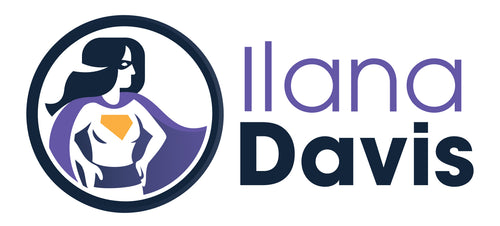Alternate page with proper canonical tag Explained for Shopify Stores
In the past, I've shared how many Search Console indexing issues can be ignored for Shopify stores.
Though JSON-LD for SEO doesn't do anything with indexing, there's one indexing issue that continues to puzzle merchants. So I wanted to expand on it in more detail since it can be hard to understand.
In most cases, the "Alternate page with proper canonical tag" issue in Search Console can be ignored. Google says as much in their documentation. For those who don't speak Google, the canonical URL is just the primary or main URL you want to use.

I've yet to see a case where there is a legitimate concern with these URLs. But that would be irresponsible of me to say just ignore it without also recommending you glance at the URLs to make sure nothing is out of the ordinary.
When you see the "Alternate page with proper canonical tag" issue, click on a URL which will open a side popout window. Select INSPECT URL to see what exactly Google is trying to tell you.
Look at the details provided to make sure there isn't a concern. It's not saying your product page isn't being indexed. It's saying another page that uses the same product canonical URL (examples below) won't be indexed. That's what you want otherwise you'll have two pages that say exactly the same thing indexed (also known as duplicate content).
When you inspect the URL, it tells you the user declared canonical and Google-selected canonical. As long as these are the same, there's no concern.

Some examples you may see that can be ignored:
- A collection-aware URL (e.g. /collection/collection-name/products/product-name) and the canonical is the product-only URL (e.g. /products/product-name).
- A product URL with ?pr_prod_strat... and the canonical is the product URL without the gobbledygook.
- A URL with wpm or web-pixel-manager and the canonical URL is without the gobbledygook.
- A URL with a question mark followed by UTM, currency, ref= (referral), or pagination, and the canonical URL is without the gobbledygook.
- A URL with/without a trailing backslash and the URL is the canonical.
(Gobbledygook is a technical term for all the junk no one can understand.)
Essentially, Google sees these URLs exist but knows it's not the canonical (or main) URL. So they are saying the URL with gobbledygook has a proper canonical and will use the correct product URL and ignore the gobbledygook.
Perhaps the only time I'd be concerned with a URL here is if two completely different URLs are showing up in the report. In that case, it's possible the content is nearly identical and Google has to pick one to index. If that's the case and you want both URLs to show up in search results, I recommend updating your content so they are more unique.
Google's goal here is to notify you of any potential issues that you may need to be aware of. In most cases, they are a heads up and no action is needed.
Search Console is a developer tool that has been adopted by site owners. Unfortunately, Google didn't do a great job explaining how to actually understand Search Console though they are getting better.
In the end, you have many more important things to do. This is one less thing to stress about.
JSON-LD for SEO
Get more organic search traffic from Google without having to fight for better rankings by utilizing search enhancements called Rich Results.




